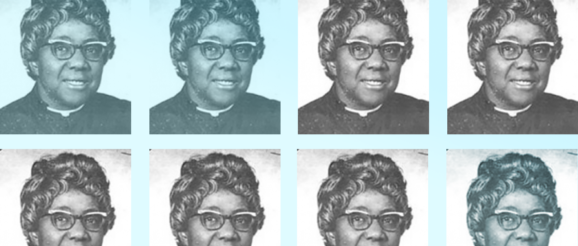Celebrating Black Innovation: Addie Aylestock | Centre for Social Innovation

When Addie Aylestock moved to Toronto as a teenager, she already knew exactly what she wanted to do with her life. “She always wanted to be a minister”, said her sister, Rella Braithwaite. Unfortunately, when Addie was a teenager in the 1920’s, this wasn’t an option for any women in Canada, let alone a Black woman. She had her sights set on forging a career path grounded in her beliefs, however, so she decided to train as a missionary. When she learned that she would have to travel to the United States to qualify as a missionary, she realized that this wasn’t an option either, and instead she joined the British Methodist Episcopal Church, which was founded and supported by the Black community in Toronto.
The British Methodist Episcopal Church, known as the BME Church, was not just a place for worship. It also served as a centre for the Black community that had settled in Toronto. The church was founded as an offshoot of the African Methodist Episcopal Church, which was based in the United States, and held a conference in a different American city each year. The founders of the BME Church supported many of the tenets of the AME Church, but they wanted to find a way to fulfill their own spiritual needs without having to enter the United States, where slave-holding was legal. By establishing a church that served their own needs, they were able to create a space for themselves. The members of the BME Church helped to provide settlement services for African-American refugees, and the church expanded across Canada, successfully establishing itself in many communities where Black Canadians were living.
Addie Aylestock was named a deaconess in the BME Church in 1951, the highest spiritual leadership role available to women at the time. She also served as the general secretary for the BME. However, she was finally able to achieve her lifelong goal in 1959, when BME changed its governing rules to allow for women to be ordained as ministers. At this time, she became the Church’s first ordained woman minister and, at the same time, Canada’s first ordained Black woman minister.
Addie served a 31 year career for the British Methodist Episcopal Church, organizing congregations in Halifax, Montreal, and North Buxton, amongst many other contributions to the Church and to her community. When describing the legacy of the BME Church, former president of the Ontario Black History Society Rosemary Sadlier said, “This was an organization that was founded not just to meet people’s spiritual needs, but to pull them together around issues of injustice”. The support of the community that built the Church allowed for people like Addie Aylestock to pursue their dreams, despite the obstacles that they faced. It was not only the strength of her convictions that made way for Addie’s successes, but also the spirit of community and progress that had been fostered for generations by Black Canadians.
